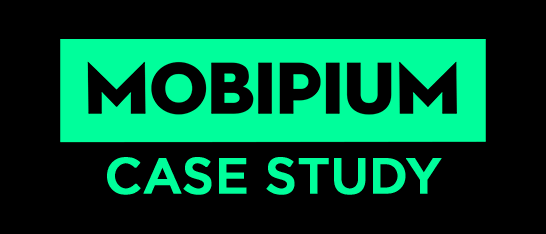Octo Browser made waves in 2024. The Octopus team received the “Best Anti-detect Browser” award at the MAC Awards 2024, gained traction in videos by influencers with millions of followers, and regularly released major updates. Interestingly though, despite their significant presence, the Octo team isn’t particularly public in the affiliate space.
We decided to fill this information gap and spoke with Octo Browser’s Head of Marketing, Darya Goncharik, about marketing in general, the specifics of promoting anti-detect browsers, the most important events of 2024, and the team’s plans for 2025.
What’s your marketing background? Where did you study, and how did that shape your marketing career?
I chose marketing right from the start: both at my first university and at my first job. I've been Head of Marketing (HoM) in various projects, from B2C sector companies like pharmacy chains and fast food (e.g., Dodo Pizza, Burger King) to legal and financial consulting. The closest I came to IT before Octo was working at a hardware company manufacturing collaborative robots. I’ve also advised many companies on strategy. As you can see, it’s been quite a diverse journey.
I have a solid foundation in marketing education. So, no rags-to-riches story without a degree here! Education is great, and I highly recommend it to everyone. I graduated from the Chartered Institute of Marketing (CIM, London, UK) with a Professional Diploma in Marketing, took professional courses in digital marketing, and recently finished the Next MBA’s Marketing Director Course.
I also did some teaching myself, launching my own courses on strategic marketing. My key strengths are strategy and having a helicopter view of things.
How did you end up at Octo? Did you already know what anti-detect browsers were or how to advertise them?
As it often happens, the job found me. A recruiter reached out to me, shared a website link, and I saw something entirely unclear: it looked like either a VPN on steroids or a cybersecurity tool. But I’m excited by high-tech products, having already worked with robot manufacturers before Octo. After a bit of research, I realized that Octo had a diverse audience, being a technologically advanced product with unpredictable but enticing prospects.
What’s more, when I joined the Octo team, there wasn’t an existing marketing team or system in place. Building that kind of thing seemed like a fascinating challenge. Now, a bit more than two years later, here I am, answering your questions!
What challenges did you face when transitioning to this marketing field? Any surprising discoveries?
Switching fields is always a challenge. But I believe that the much-loved "relevant experience" everyone puts on their CVs is overrated. It’s great to have diverse experiences and create a fusion of skills. A solid foundation and tools one can use are what matter — then it’s just about a thorough onboarding into the product and its audience, and you’re good to go!
If I were to highlight specific aspects of working with anti-detect browsers compared to other products, I’d point out these top three:
Working with hardcore techies. Here, the geeks rule: they know everything about fingerprint spoofing but have a very specific understanding of marketing and sales. Sometimes this may clash with a penchant for quick results and high ambitions. But I managed to find common ground with the founders, and over time, we’ve become less about the startup “adventurer” spirit and more about building a stable, results-driven team. Our goals remain just as ambitious, but now we’re on a steady and sustainable path toward achieving them.
A highly influential community. Many of our users are affiliate marketing professionals, and there’s probably no tighter community than this. Chat discussions are always emotional: think gaming Discord. The community’s influence on our product is enormous: the team sees and discusses all user requests. However, we can’t implement everything immediately: we need time to work on stability and features under the hood. Adapting to such fast and passionate feedback was challenging too.
The technical complexity of the product. An anti-detect browser’s effectiveness doesn’t entirely depend on its development team. Various factors influence it, such as antifraud system specifics, fingerprint settings, and proxy quality. It’s like fueling a petrol car with diesel: you theoretically could, but you definitely shouldn’t. So together with the product team we aim to give our users both extensive configuration options and something like a "Just Make It Work Well" button. For example, you can create a quick profile in a few clicks right now, connect a proxy from our built-in Proxy Shop, and voilà, you’re good to go.
How do you roll out your features? You’ve mentioned the Proxy Shop, but you've recently released many other impressive updates for users as well. Which were your top priorities?
Over the past year, we’ve released seven major product updates, each packed with numerous new features and improvements. If I were to group them under a single heading, it would be the year of improving the user experience. But, of course, we didn’t forget about under the hood improvements.
At the beginning of the year, we launched our referral program. Users had been asking for it for a long time, and we already knew massive updates were coming to Octo, so we implemented it as quickly as possible. Now, users can create their own referral link directly in the browser, attract traffic to it, and earn 15% on every payment made by their referrals.
Next came Octo 2.0: in this version, we significantly upgraded the interface, added more bulk management options for profiles and extensions, and introduced several other useful changes, e.g., two-factor authentication. We hadn’t had time to focus on the interface before, but with a growing team, it became clear it was time for a change.
Then we rolled out Profile Tasks, a feature that turns the anti-detect browser into a simple yet practical task management system. No more reminders on your phone, pings, delayed messages, or other workarounds: basic task management is now available directly in Octo.
Toward the end of the year, our final highlight was the Proxy Shop. It offers high-quality proxies at reasonable prices directly in Octo, with great discounts for large traffic amounts. This eliminated yet another headache for our users: they no longer need to search for proxy providers themselves.
Lastly, I want to highlight a big set of updates related to data security. Many large teams handling lots of sensitive data work with Octo, so we added a unique feature: profile passwords. These allow users to add an extra layer of protection in case, for example, they lose physical access to a laptop logged into Octo.
Just in time for the topic of passwords: can you elaborate on the security measures taken to protect user data in your browser?
Data protection is one of our top priorities. The number of data breaches and leaks, both among competitors and across the industry in general, is growing. At least once a year, there’s some kind of a legendary leak. That’s why we’ve always approached data security with extra care. We store data on European servers and encrypt it very securely. The storage system is designed in such a way so that even if an attacker gains access to one of its components, they still won’t be able to access the profiles. Octo profiles are encrypted using several components: a secret key, a unique database key, and the user’s key if they’ve set a password to the profile.
We also haven’t overlooked features tied to security. For instance, take the profile passwords we’ve just mentioned — you won’t even be able to recover them through our support! We don’t know them, don’t store them, and therefore can't give them to you or anybody else. Effectively, this means they simply can’t be stolen. It’s a strong tool, so we recommend handling it with care!
What other unique features can you offer your users?
Our main unique feature is that our product actually works as it should! There isn't an anti-detect browser on the market that’s more stable, as regularly updated, and as quality-driven in terms of fingerprint spoofing as Octo. And you don’t have to be an MIT graduate to see this for yourself. Uptime? We’re available 99.995% of the time, and this is also evident in the community chats (remember how I mentioned the influential community). Or consider the speed of updates: take a look at all anti-detect browsers on the market and compare how often they release new browser kernel updates. Assessing fingerprint quality is more complex, as you’ll need to test it in practice, but you already know what the results will be.
We’re an enterprise among startups in the anti-detect market. At Octo, all processes are already streamlined, there’s a dream team in place, and we’re constantly improving at a sure, steady, and unabating pace. That’s the source of the quality that’s worth choosing, especially for large businesses and long-term strategies.
How do you plan to adapt to the improving tracking and blocking algorithms used on websites?
We have a specifically dedicated division within our development team whose task is to ensure we can always bypass any protection system. As you might guess, I can’t share any details about the work of these remarkable people; it’s a trade secret.
How do you assess the growth potential of the anti-detect browser market in the coming years?
The market will grow, just as it has been. There are numerous use cases for anti-detect browsers beyond affiliate marketing and airdrops. The more the Internet is regulated, the more bypassing tools will be needed by a wide variety of professionals.
We may even reach a point when regular Internet users will decide to enhance their cybersecurity or that they need a broader access to online resources en masse — similar to how the VPN market emerged in its modern form. Overall, the trends for us are positive, and all paths are open.
What will the Octo team focus on in 2025? Can we expect new features or greater media presence?
Our plans are ambitious, as always! You will see both new features and greater media presence. We’ll be conquering new markets and reaching new audiences that are only beginning to discover the possibilities that multi-accounting offers.
We’ll continue developing our user community, Octo Club. It already includes some very serious on the inside and not-so-serious on the outside experts, and we aim to grow this community further. We plan to attend conventions and conferences, find exciting partnerships, make it to the ranking tops, and win awards in relevant categories. And, of course, we’ll keep generating lots of useful, high-quality human-written content!
Finally: do you have a professional motto or philosophy you follow in your work?
I actually have three.
First: people are key. For me, the team is the foundation of success. No matter how ambitious the idea, it will remain just a concept without a team to implement it. Working in a team can be tough, but it’s worth it.
The key stage in working with a team for me is creating a culture that promotes initiative, provides a steady foundation during times of change, and serves as the bedrock for the employee lifecycle in the company. This culture allows the system to embrace innovation and move forward, rather than regress.
Second: the best is the enemy of the good. Everyone on our team is a perfectionist, and until we test something 500 times, we don’t consider our work done. This is especially evident in marketing. But it’s important to learn when it makes sense to keep aiming for perfection and when it’s better to proceed to the next step to avoid losing valuable time.
Often, a new inexperienced employee will immediately try to remake everything according to “best practices” and “the right way.” Such an approach will almost always fail. An experienced professional, on the other hand, first analyzes what works just fine, what needs adjustment, and what really requires a makeover. This flexible approach is the key to sustainable operations and the ability to adapt to available resources and present context.
Third: ideas are great, but a clear plan is even better. It’s always nice when someone comes with a well thought-out proposal, rather than with “let’s just make something epic.” In marketing, we do love projects that go viral, but it’s essential to discuss every detail before we launch them: why we need them, what resources they will require, what the outcome will be, and what the risks are.
Wrapping up our interview, can you share your contact details? We’re sure many will be interested in following such a guest.
Of course! Here’s my LinkedIn 😊





































